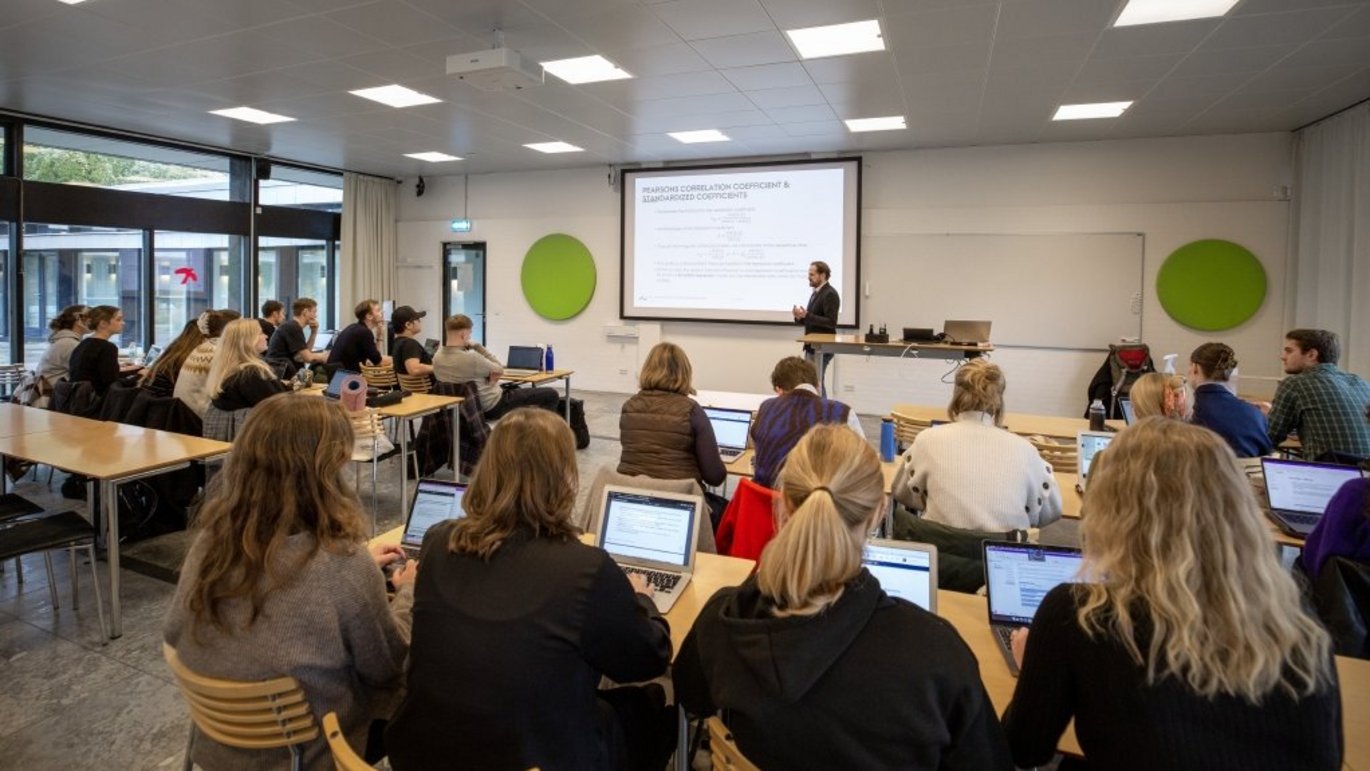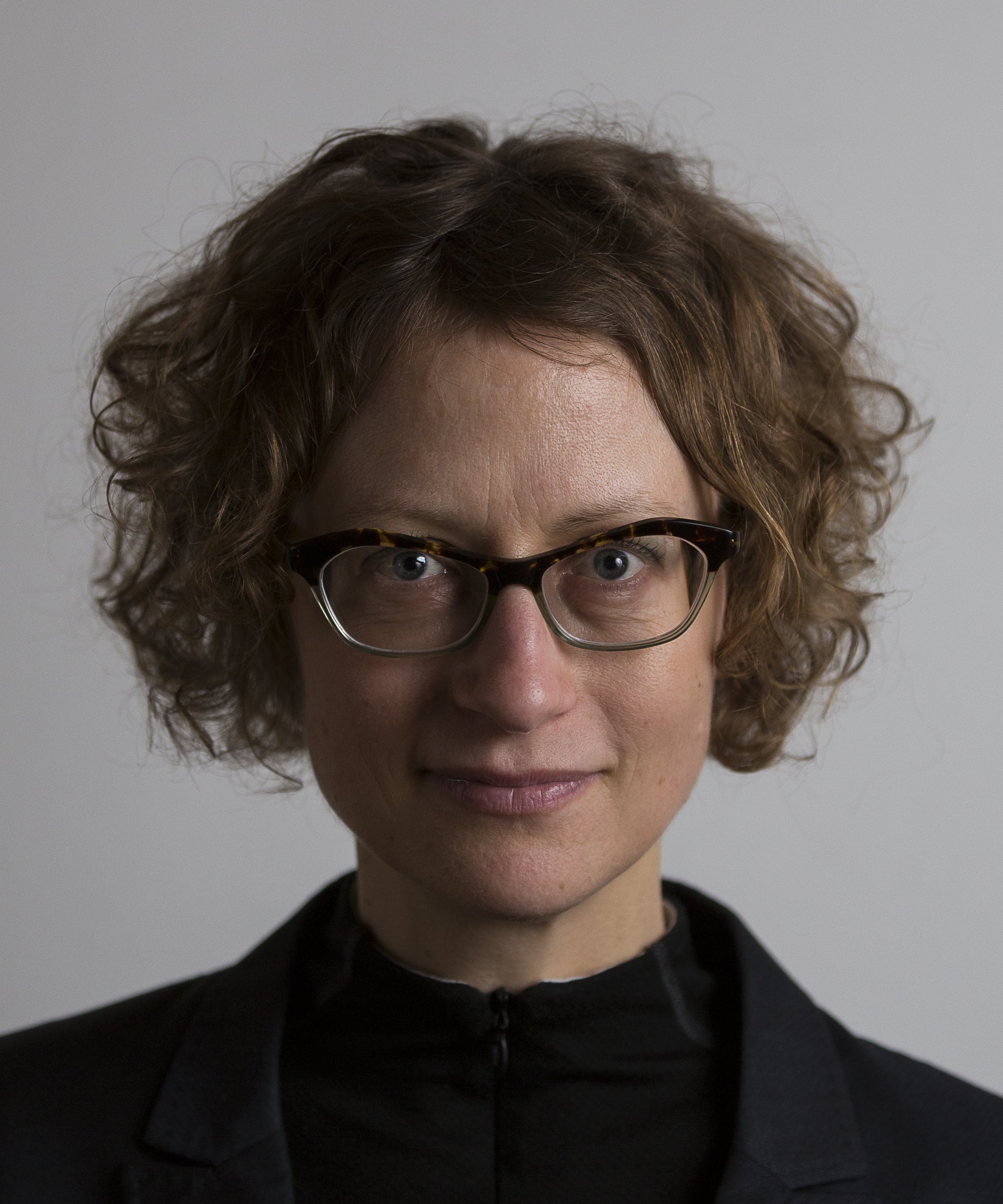"Students are project managers of their study programme"
We need to modernise the educational structure to meet the diverse needs of today’s students, says Associate Professor Louise Bøttcher. According to her, students today are left alone as project managers of their studies, and she calls for a more inclusive and accessible educational structure.


“I want to wake up a giant,” says Louise Bøttcher in the video of her winning pitch at the Bevica Fellowship competition in 2023. She is an associate professor at the Danish School of Education (DPU) where she teaches educational psychology. For more than 10 years, she has researched children and adolescents with disabilities and their learning and development.
The ‘giant’ that Louise Bøttcher is referring to is the Danish universities and higher education programmes, which she has now shone her spotlight on. According to her, today, far too many students struggle with the educational system:
“It is about time we challenge the notion that if you cannot keep up with the teaching at the university under standard conditions, you are not suited for higher education. Generally, we just have new types of students today. Too few people fit the narrow path we have created,” she states.
“And the thing is, it is not just students with disabilities who need support. Anyone can be affected by circumstances that make it difficult for them to participate in the programme; chronic illness that suddenly flares up, an injury, a difficult housing situation, or serious illness in the family. That is why I believe we need to look at the way we organise teaching to accommodate a more diverse student body.”
A growing group to consider
Louise Bøttcher points out that it is a growing group that can benefit from modernising our university educational practice. This is also evident in a report from the Danish Evaluation Institute (EVA).
“In my role as a teacher, I have noticed how every year a lot of my students struggle with the way we organise education. For example, we have people with dyslexia who struggle with the way the university meets them,” Louise Bøttcher says.
She explains that if a student needs to record a lecture, they must first obtain permission from each individual teacher. And the teacher does not always agree to being recorded.
“Students find it uncomfortable to go cap in hand every time they need to ask for permission. It adds another layer of complexity for them to navigate alongside their dyslexia. And there can be many other challenges beyond dyslexia. It is an extremely diverse group of students with different needs. While special educational support is available, the challenge remains that students must actively seek out this assistance themselves,” Louise Bøttcher explains.
She points out that this can be hard extra work for students who are already burdened by their disability:
“Students are project managers of their own study programme,” she says.
Education should have inclusion at its core
As a result of her observations, Louise Bøttcher became interested in the concept of ‘Universal Design for Learning’.
‘Universal design’ is a concept that originates from architecture and emphasises how diversity should be considered from the outset and built into structures, rather than being added later as an afterthought:
“In architecture, it is about considering diversity from the beginning instead of having to adjust later when you realise that, for example, the stairs to the front door are inaccessible to wheelchair users or people with prams. This approach has since been applied to the field of education,” explains Louise Bøttcher.
It involves providing students with various ways to engage with the material and offering multiple methods for them to demonstrate their learning. This could include assignments such as written essays, podcasts, and visual presentations.
“However, inclusion in higher education goes far beyond what happens in the classroom and how individual teachers organise their teaching. It is also about how we shape students so that they learn to organise their daily life and study habits, how they work on academic assignments, or facilitate their study group work.”
The future of inclusion in higher education
Louise Bøttcher does not yet have an answer as to how we, as a university, can reach a point where we can better optimise support for students facing specific challenges.
In 2024, her research project ‘Inclusion in higher education through design of multiple student pathways’ received DKK 2.4 million from the Aarhus University Research Foundation. Through the project, she wants to find answers as to how universities and other higher education institutions can become more inclusive in their teaching and organisation in general.
“Among other things, I believe we need to work towards a deeper integration of special educational support within the programmes themselves so that we do not place the responsibility solely on the students to seek support. And then we need to show how diversity is a quality. I believe it will be a long and tough process. But I am confident that it can be done,” she concludes.
Learn more
If you would like to learn more about what you can do to help students with disabilities, you can find help on AU Educate.
If you want to know more about how to address specific challenges related to the inclusive learning environment in your academic environment, you can book a CED consultant for a preliminary chat.
